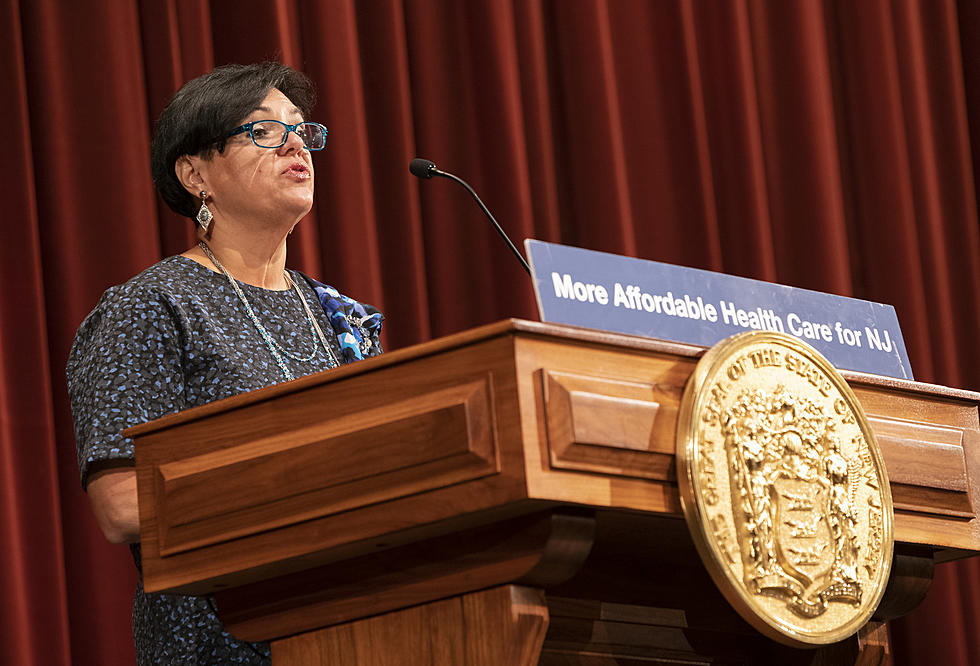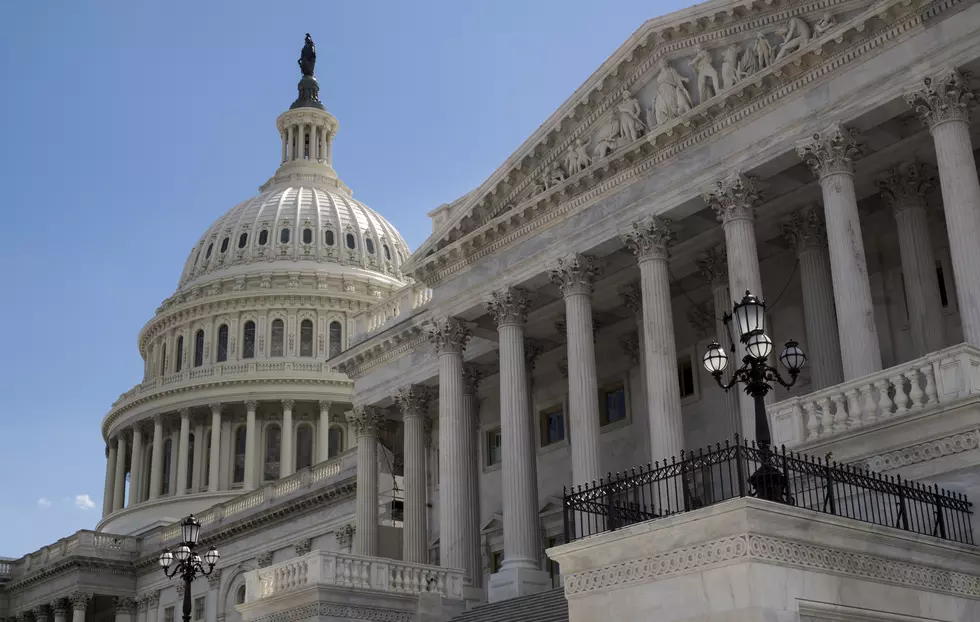![Health insurance under the Affordable Care Act for 2015 [Q & A]](http://townsquare.media/site/385/files/2014/02/450630129.jpg?w=980&q=75)
Health insurance under the Affordable Care Act for 2015 [Q & A]
New Jersey residents can begin choosing health plans Saturday through an online insurance exchange that is a major part of President Barack Obama's health insurance overhaul.
Last year was the launch of the exchange. Like most states, New Jersey is having the federal government run its version of it, though plans are specific to each state.
Last year's launch was marred by technical problems with the website, but more than 160,000 New Jersey residents ended up getting coverage. That figure far exceeded the federal government's projections.
Q. What is the exchange?
A. It's an online marketplace where eligible residents can enroll in health insurance plans. There is a financial incentive to join: Many people are eligible for subsidies, including families of four with incomes under $95,000. The federal government is also imposing tax penalties on those with no health insurance and it rises for those who are not covered in 2014 from a minimum of $95 for an adult to a minimum of $325.
Q. When is the open enrollment period?
A. It begins Saturday and continues until Feb. 15 at healthcare.gov. There are also community groups helping people sign up.
Q: If I signed up for insurance through healthcare.gov last time, do I have to go through that again?
A: If you do nothing, you will be automatically renewed in your current plan on Jan. 1. But that plan may no longer be your best buy. Also, you'll be getting last year's tax credit, which could well be lower than the amount you're entitled to for 2015. And there are lots of new plans available, so you may also miss out on a lower-cost option. Officials are advising existing customers to go back to HealthCare.gov update their financial and household information, and at least check other plans. If you want to make any changes, you'll have to do that by Dec. 15 to avoid a break in coverage on Jan. 1.
Q: What is happening with health plans?
A: Five companies are offering plans for 2015, compared with three for the current year. Plans and premiums available in New Jersey, which does not have its own state exchange, are now online at HealthCare.gov. You can apply between Nov. 15, 2014, and Feb. 15, 2015. If you were already covered this year, you can change plans during open enrollment.
Plans cover essential health benefits, pre-existing conditions, and preventive care. Under federal government rules, there are four levels of plans — bronze, silver, gold and platinum — that cover varying percentages of expected health care costs. Bronze plans cover 60 percent and platinum 90 percent. The deductibles, out-of-pocket maximums and lists of health care providers vary by plan.
Additionally, adults under 30 and some others with low incomes are eligible for low-priced but high-deductible plans only for catastrophic health issues.
Q. And what about prices?
It depends on the plan. Some are more expensive than this year, some cost less.
According to PricewaterhouseCoopers's Health Research Institute, the average premium will be around $344 before tax credit subsidies. That's an increase from 2014 of about 3.5 percent. Premiums vary from state to state with some down as much as 22 percent and others up 35 percent.
The good news is that most people who apply through exchanges will qualify for tax credits that reduce their premiums. For 2015, individuals earning between $11,670 and $46,680 qualify for a premium tax credit. For a family of four, the range is $23,850 to $95,400.
Q. Should people who are using plans offered on the exchange this year stick with what they have?
A. Maybe. But advocates say it makes sense to shop around. Details of some plans are changing, as are the prices. Advocates — and the federal government — say consumers should look at details beyond the premium cost as they decide.
Q: What should I have ready when applying?
A: If you had coverage in 2014, it's helpful to take stock of what's changed and include any changes you expect in 2015 including: Income changes, births, deaths, marriage or divorce, anyone in the family who got coverage through a job, anybody getting health coverage through a public program like Medicare or Medicaid.
Q: What other out-of-pocket costs should I consider?
A: The maximum out-of-pocket cost for any marketplace plan for 2015 can be no more than $6,600 for an individual plan and $13,200 for a family plan. This is the most you pay a year before your health insurance or plan starts to pay 100 percent for covered essential health benefits.
This limit includes deductibles, coinsurance, copayments or any other qualified medical expense. It does not have to count premiums, out-of-network costs or non-essential health benefits.
Q: Will I get to keep my doctor?
A: Check with your insurance company to make sure your doctor will still be in the plan's network in 2015. Exchange websites will route you to the health insurance company's online list of doctors. You also can contact your doctors directly to see which health plans they will accept in 2015.
Q: What if I don't buy health insurance?
A: The penalty is going up for people who go without health insurance. It's at least $325 per adult, or 2 percent of income, whichever is greater, up to a cap.
Q: How will my premium tax credits impact my taxes?
A: The vast majority of current customers are getting tax credits to help with premiums. Those subsidies are tied to income, so you'll have to account for them when you file your 2014 taxes. HealthCare.gov or your state's exchange will send you a form in January that reports how much you got. You'll use that information on a new tax form to be filed with your 2014 tax return, to prove you got the right amount of tax credits. Too much subsidy and your tax refund will get dinged. Too little, and the government owes you. It's bound to cause anxiety because many people depend on their tax refunds to pay bills.
Q: What happens to me if I got an extension under President Barack Obama's decision to allow people to keep plans slated for cancellation last year?
Some plans that existed before the health care law passed do not include new benefits and protections. They are not offered by exchanges. Some of them are being changed by insurers to incorporate new benefit requirements, some are being canceled and some states are allowing people to renew their plans through 2016.
Q. How many people in New Jersey joined plans offered on the exchange for coverage this year?
A. More than 160,000. But New Jersey also expanded its Medicaid program eligibility using another part of the health insurance overhaul, and many people who tried to enroll in the exchange plans learned they were eligible for Medicaid. Medicaid enrollment jumped from 1.28 million last December to 1.7 million in October. The Robert Wood Johnson Foundation found that the percentage of New Jersey residents without coverage dropped from nearly 22 percent in September 2013 to under 11 percent in June.
Q. Will the number of uninsured keep dropping?
A. There are some factors that may suggest it will, including rising federal tax penalties for those without coverage. Also, foundations are still funding outreach efforts to encourage enrollment — but at lower levels than last year. It's expected that some people will remain unaware they can get coverage, unable to afford it or unwilling to sign up for a variety of reasons.
© 2014 The Associated Press. All rights reserved. This material may not be published, broadcast, rewritten or redistributed. Learn more about our Privacy Policy and Terms of Use.
More From New Jersey 101.5 FM









